#Exports
Vietnamese EV Startup Says More Models Coming to America
VinFast, the Vietnamese automotive startup that showcased five electric vehicles at this year’s Consumer Electronics Show (CES), has said it’ll be expanding the lineup planned for North America. With midsize offerings already slated for export, the company used the Los Angeles Auto Show to show off the subcompact VF6 and compact VF7 – adding that it’ll also be shipping those units our way for the 2024 model year.
GM Will Begin Offering Full Sized SUVs in China
General Motors intends to start selling its full-size SUVs in China and is currently showcasing the Chevrolet Tahoe, Chevy Suburban, Cadillac Escalade, and GMC Yukon Denali at the China International Import Expo in Shanghai. That means these vehicles will be imported rather than being manufactured in-country as part of their government-mandated partnerships with Chinese automotive firms.
Why would GM do this in a nation that’s supposed to be prioritizing hyper-efficient electric vehicles? Well, China is currently the world’s largest car market and is on track to be the only major economy on Earth that will grow during the pandemic — the yuan has already hit a 28-month high against the dollar after the U.S. presidential election started skewing in favor of Joe Biden. Meanwhile, General Motors happens to be one of the region’s largest automakers and competition is stiffing between it and the likes of Volkswagen, Geely, Honda, and Toyota.
Flood Turns to a Trickle As U.S. Demands Fewer Cars From Japan
The trans-Pacific flow of automobiles between the U.S. and Japan has always been a lopsided thing, with an infinitely greater number of cars heading east than west. Lately, thanks to a spiky virus, that flow has tapered off.
Just how fewer Japanese vehicles made a boat trip in May is cause for concern for their country of origin.
Aussies Turn Away Mercedes-Benz Shipments Infested With Gastropod Mollusks
If you’re like this writer, you might be surprised to learn that snails, the subject of this piece, are loosely related to the octopus. Learning doesn’t have to end when you leave school.
Snails, also known by more scientific names, are fun to step on, but can cause quite a bit of consternation and unexpected expense when they inhabit premium German automobiles. Especially ones that just took a very long boat ride.
Thousands of Mercedes-Benz GLEs Mysteriously Chilling on North German Runway
Daimler has been forced to store thousands of vehicles at a former military airport in northern Germany, the result of supplier issues that are stalling deliveries of the updated GLE-Class. While keeping cars on ice until they can be shipped is totally normal, it’s odd to see them lined up on a runway. It makes it look like they’re all about to take to the sky or engage in the most congested drag race in history.
Assembled in Alabama, these SUVs are being held up by unknown supply chain problems. Mercedes-Benz suggested there may be also be problems stemming from the multi-market launch of the updated GLE and a surge in output from the U.S. factory.
Automakers Sweating After China Announces 25-percent Tariff on U.S. Autos
The trade war between the United States and China heated up again Friday, with the People’s Republic pulling a U-turn on its treatment of U.S.-built vehicles. Come mid-December, China will hit inbound U.S. vehicles with a 25-percent tariff. Auto parts will see a 5-percent tariff.
The new — well, resurrected — auto tariffs are a reactionary measure, coming after U.S. President Donald Trump proposed, then delayed, the levying of a 10-percent tariff on $300 billion of Chinese goods. While some import taxes will hit in September, the full range of tariffs is expected to come into effect on December 15th. China’s auto tariffs, first levied last year and lifted earlier this year as an olive branch gesture, are part of a larger raft of tariffs impacting $75 billion of U.S. goods. A 5- to 10-percent tariff hits non-auto U.S. goods on September 1st.
It’s no wonder every automaker wants to build Chinese-market vehicles within that country’s borders.
BMW Takes Its EVs-from-China Plan Off the Burner
Unlike another German automaker, BMW isn’t jumping into “electromobility” (gag) with both feet. There’s an element of restraint in the automaker’s electrification plans, unlike Volkswagen’s bid to put 1 billion EVs on the moon by next week. Thanks to this cautious blend of profit-mindedness and environmental consideration, we now have high-margin vehicles positioned above the X7 SUV. (Bimmer needs the dough for green things.)
But electric BMW vehicles are already here, and more are on the way. Normal-looking ones, too, like the iX3 crossover — a battery-electric version of the popular X3, due to start rolling out of China next year. At least, Bimmer was due to begin exporting it, until the automaker took the needle off the record.
Side-stepping Tariffs: Tesla Sets Chinese Target of 3,000 Model 3s Per Week
Due to China’s increased tariffs on U.S.-manufactured vehicles, Tesla’s sales have taken a moderate beating there. Like any automaker hoping to move metal within the region, it wants a solution and seems to have come up with one. While there appears to be little hope of the brand’s larger vehicles circumventing the nation’s 40 percent import duty, there’s still hope for the Model 3.
The plan is a familiar one.
Car, Parts Companies Exhale, but Not Everyone's Thrilled by USMCA
Canada’s autoworkers feel pretty confident they’ll still have a job next year, as the free trade agreement reached by the U.S. and its northern neighbor Sunday night pretty much keeps the status quo alive in that country’s auto sector.
Just last week, with headway essentially absent from the trade negotiations, President Trump repeated his threat of levying a 25 percent import tax on Canadian vehicles. Such a tariff could easily have seen 160,000 jobs erased from the auto and parts manufacturing industries; perhaps more.
However, just because the industry came out all right in the end doesn’t mean the future is entirely rosy.
Trade War Watch: U.S. Preparing to Limit Chinese Investment
The Trump administration is planning to impose incredibly restrictive investment limits against China. While the barriers could be argued as fair, considering China has some pretty serious restrictions of its own, the timing isn’t great. Treasury Secretary Steven Mnuchin pursued a less confrontational approach toward China after the nation showed some lenience in earlier promises to open its automotive and tech sectors through reduced tariffs, eventually eliminating state-mandated joint partnerships.
This move will no doubt make his job a lot more complicated.
It seems that the limits would restrict certain Chinese companies from investing in U.S. technology firms and block additional tech-related exports to Beijing. Among the industries most affect are robotics, aerospace, and automobiles — which have been labelled by the administration as a threat to economic and national security.
This Is the End: R.I.P., Australian-built Automobiles
Maybe the dingo ate your industry? No, that cruel joke doesn’t hold a grain of truth — Australia’s domestic auto industry simply fell victim to the harsh realities of economics and globalization.
No longer a captive market, no longer a country with steep walls built of tariffs, the land Down Under found it could no longer sustain its own vehicle manufacturing presence. Because of this, today marks the end of it all. Workers will leave the Holden assembly plant in Elizabeth, South Australia, closing the door on the GM subsidiary’s 69-year Aussie car-building history.
It seems the final vehicle to leave the plant was fittingly badass.
U.S. Attempts to Convince South Korea to 'Buy American'
Officials from the United States and South Korea held a special session in Washington on Wednesday as part of U.S. Trade Representative Robert Lighthizer’s request to consider amending the two countries’ trade agreement. The joint talks serve to reassess the countries’ five-year pact, with the Trump administration aiming to diminish America’s growing trade deficit with South Korea.
One of the largest issues concerns the automotive industry. Korean rules stipulate a cap on the number of vehicles U.S. automakers can bring into the country each year that adhere to the country of origin’s safety standards. Presently, that quota sits at 25,000 vehicles per manufacturer. However, no U.S. company has ever made full use of the quota. General Motors, which is the most popular U.S. brand in South Korea, only sold 13,150 domestically built units in 2016.
The Problem Isn't Tariffs, Japan Just Hates American Automobiles
Japanese cars gradually overcame the stigma of being low-quality, unreliable trash piles after entering the U.S. market decades ago. Imports became commonplace during the 1970s and Japan’s cars began setting the new benchmark for automotive quality while Ronald Reagan was in office.
The inverse can be said of American cars being sold in Japan, and it’s a well-documented and long-running annoyance for the American automotive industry. In January, a frustrated President Donald Trump complained that Japan does “things to us that make it impossible to sell cars in Japan, and yet, they sell cars [in the United States] and they come in by the hundreds of thousands on the biggest ships I’ve ever seen.”
Though the statement could be taken as contentious, as Japan does not impose any tariffs on U.S. cars, the country also exported 1.6 million vehicles to the States while America sold fewer than 19,000 back in 2015. Something is definitely amiss, and while it might not be as simple a reason as Japan hating our cars, that’s still a large part of it.
Ghosn on the March: What Does an Alliance Mean for Nissan and Mitsubishi?
Yesterday’s news that Nissan will buy a 34-percent controlling stake in Mitsubishi for $2.2 billion was the latest win for Carlos Ghosn, the man behind the Renault-Nissan Alliance of 1999 and possessor of many fingers in many pies.
Ghosn, CEO of both Nissan and Renault, inked the agreement with Mitsubishi as the other automaker battles a misleading gas-mileage scandal. At a price of 468.52 yen/share, Ghosn’s purchase of new shares was a smoking deal. Mitsubishi shares traded for 1,100 yen just last December.
What becomes of the two companies now? And how will Ghosn’s world-straddling empire benefit by snapping up beleaguered Mitsubishi?
It's Saint Patrick's Day, Meaning It's Also DeLorean DMC-12 Day
Listen, we don’t want any trouble.
St. Paddy’s Day is a time for all of us — black and white, Irish and American, Catholic and Protestant and all those other religions — to come together and figure out how much green food coloring can be consumed before it has a laxative effect.
But, as we think of the Emerald Isle today, our minds can’t help but be reminded of a famous and totally ballin’ export from the troubled north — the DeLorean DMC-12.







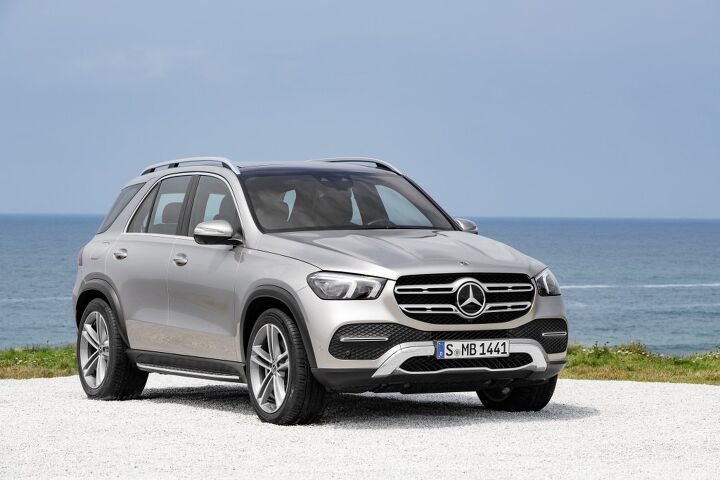


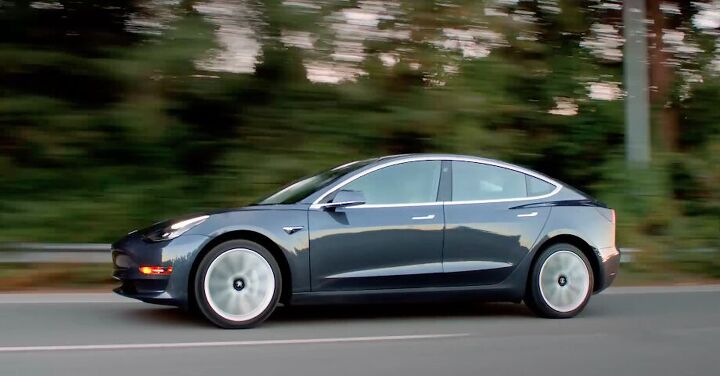

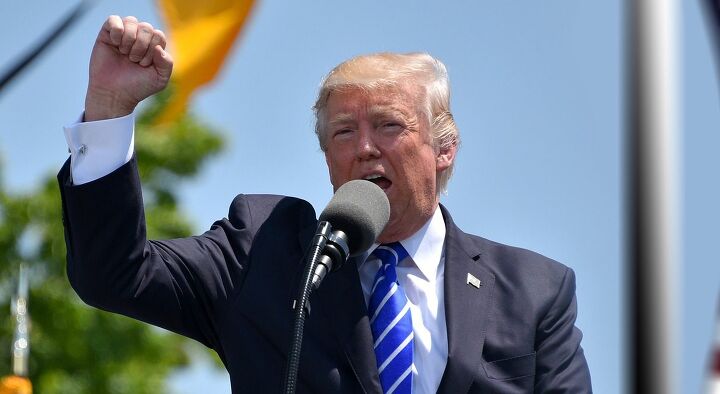

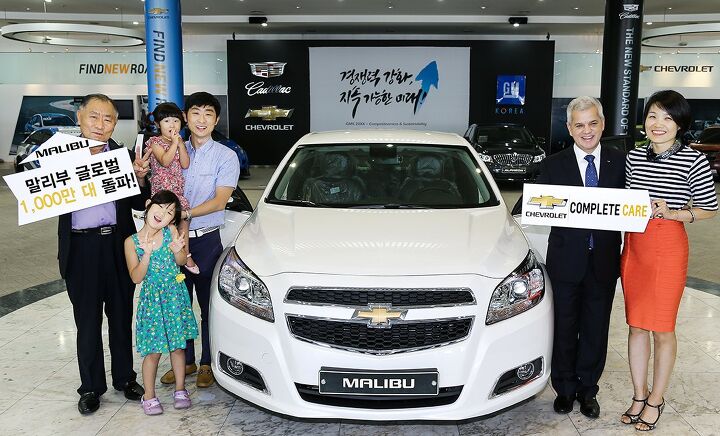
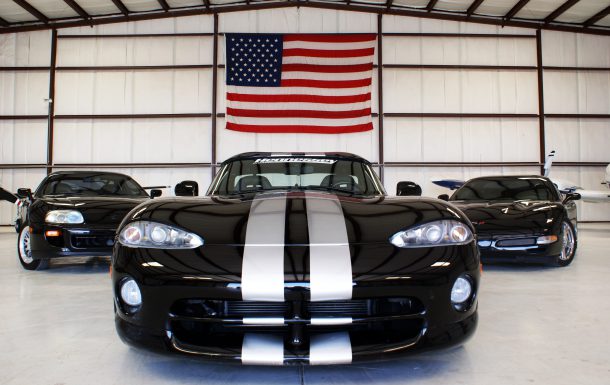
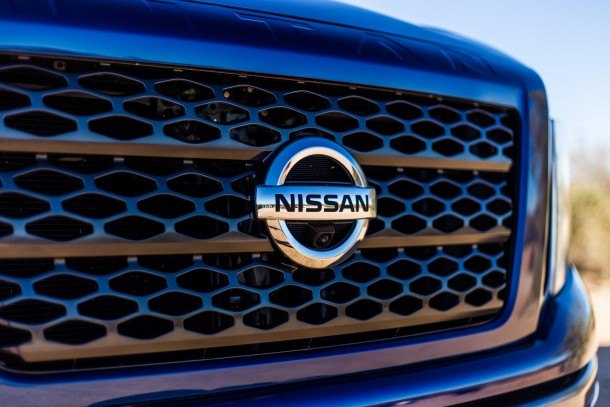













Recent Comments